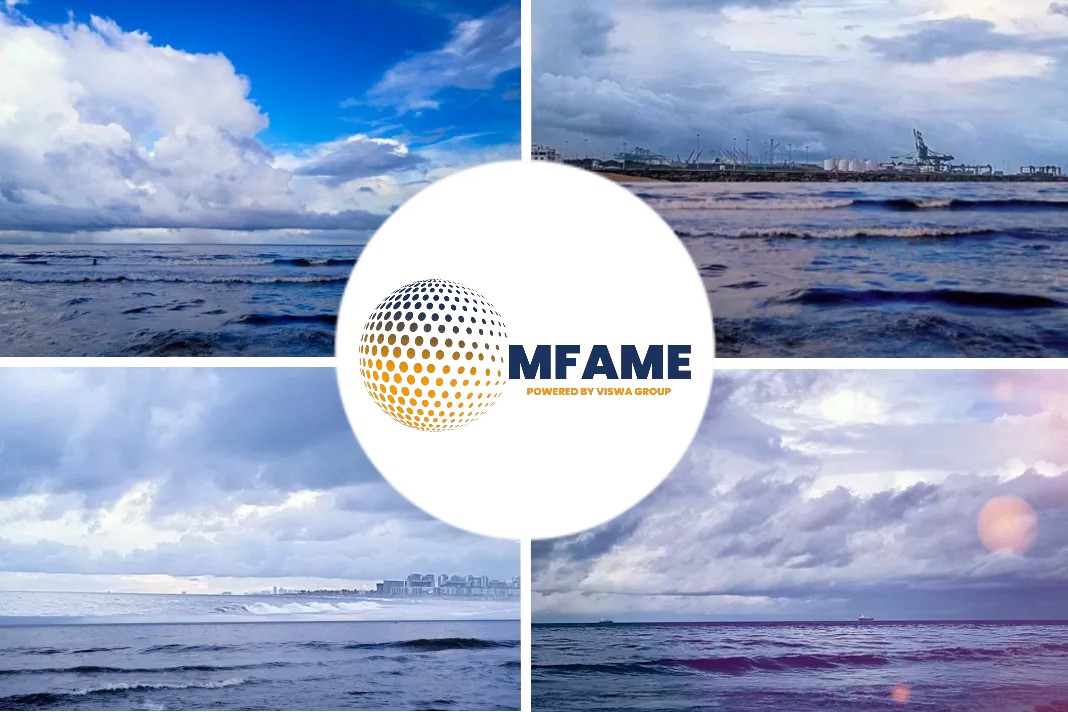- 3D printing service provider 3D Metalforge has successfully tested three different 3D printed parts on board ConocoPhillips Polar Tankers’ Endeavour oil tanker.
- The parts have now been retrieved and inspected by the Endeavour crew and ABS.
- For this project, the consortium chose to leverage 3D printing to fabricate three types of parts that matched the quality of conventionally manufactured parts.
3D printing service provider 3D Metalforge has successfully tested three different 3D printed parts on board ConocoPhillips Polar Tankers’ Endeavour oil tanker, says an article published on their website.
3D parts inspected by ABS
As part of a pioneering project, 3D Metalforge worked with ConocoPhillips, engineering services provider Sembcorp Marine and classification society American Bureau of Shipping (ABS) to fabricate, test, and install 3D printed parts on-board the Endeavor oil tanker, which were in operation for six months.
The parts have now been retrieved and inspected by the Endeavour crew and ABS, and have been validated to be in good working condition.
“We are delighted with the performance of the parts and the successful completion of the project,” said Patrick Ryan, ABS Senior Vice President, Global Engineering and Technology. “It’s an important step forward for a technology that certainly has a significant role to play in the future of the marine industry”.
3D Metalforge’s marine and offshore expansion
3D Metalforge offers a range of production, design consultancy and training services, backed by its varied portfolio of SLM, DED, MJF and FFF 3D printers and post-processing machines.
The company primarily addresses the marine industry, but is increasingly targeting applications in sectors such as oil and gas and construction.
To this end, the company opened its Additive Manufacturing Centre (AMC) in Singapore in 2017 equipped with end-to-end production capabilities, and later signed two memoranda of understanding with the Maritime and Port Authority of Singapore to develop a just-in-time inventory of 3D printed parts.
3D Metalforge has since expanded with a new 21 system-strong print farm and gone public on the ASX in a move that raised A$10 million in capital.
Shortly after completing its IPO, the firm unveiled several further updates, including a new Texas-based factory, the opening of an ‘AM port facility’ equipped with Hybrid Wire Arc (W-HAAM) technology, and becoming a certified pump impeller supplier for pump and valve manufacturer Flowserve.
Most recently, 3D Metalforge supplied 3D printed heat exchanger parts to one of oil and gas conglomerate Shell’s offshore facilities “in record time”. The components were designed to improve the thermal dynamics of heat exchangers and condensers in order to reduce their likelihood of failure.
Installing 3D printed parts on the Endeavour
Traditionally, parts used in shipbuilding and repair tend to be manufactured through conventional techniques like casting and forging.
For this project, the consortium chose to leverage 3D printing to fabricate three types of parts that matched the quality of conventionally manufactured parts, while shortening lead times and improving supply chain efficiencies.
The three parts chosen for the project included a gear set and gear shaft for the tanker’s boiler fuel supply pump, a flexible coupling for a marine sanitation devices pump, and an ejector nozzle for a freshwater generator.
3D Metalforge fabricated the parts using its 3D printing technology portfolio, which were then installed and put into operation on the ConocoPhillips’ Endeavour oil tanker for six months.
“The superior performance of these parts in service is a testament to the rigorous engineering, manufacturing and post-production testing put in place by the team involved with this venture,” said Robert Noyer, ConocoPhillips Polar Tankers Engineering Superintendent. “We look forward to future opportunities to support our vessels with this technology.”
Validating 3D Metalforge’s parts
ABS has been aiding the marine sector with the adoption and acceleration of additive manufacturing since 2017, and earlier this year published the ABS Guide for Additive Manufacturing.
The guide focuses on two main metal 3D printing processes, PBF and DED, and defines the ABS approval and certification process for additive manufacturing facilities and parts.
The guide delivers standards on 3D printing design, feedstock material, pre-build, build and post-build processes, inspection and testing.
As part of the project, 3D Metalforge’s 3D printed components were in operation onboard the Endeavour for a period of six months, before they were retrieved and inspected by the tanker’s crew. ABS remote surveyed the parts and validated them as still being in good working condition.
“The success of this project augurs well for the adoption of additive manufacturing in the marine industry,” said Simon Kuik, Sembcorp Marine Head of R&D.
“Through AM, Sembcorp Marine is able to customize parts for our customers and reduce material wastage and remove supply chain inefficiencies. This augments our value proposition as a one-stop-shop innovative solutions provider for the offshore, marine, and energy industries and affirms our sustainability ethos.”
According to 3D Metalforge, the project has demonstrated its continuing commitment to spearheading the adoption of 3D printing within the marine sector and beyond.
“We are proud to work as a trusted partner, with companies like ABS, Sembcorp Marine, and ConocoPhillips Polar Tankers to provide greater value through new and innovative manufacturing solutions, and to help meet changing component manufacturing, supply chain, and sustainability challenges,” said Matthew Waterhouse, 3D Metalforge Managing Director.
Did you subscribe to our daily newsletter?
It’s Free! Click here to Subscribe!
Source: 3d printing

























